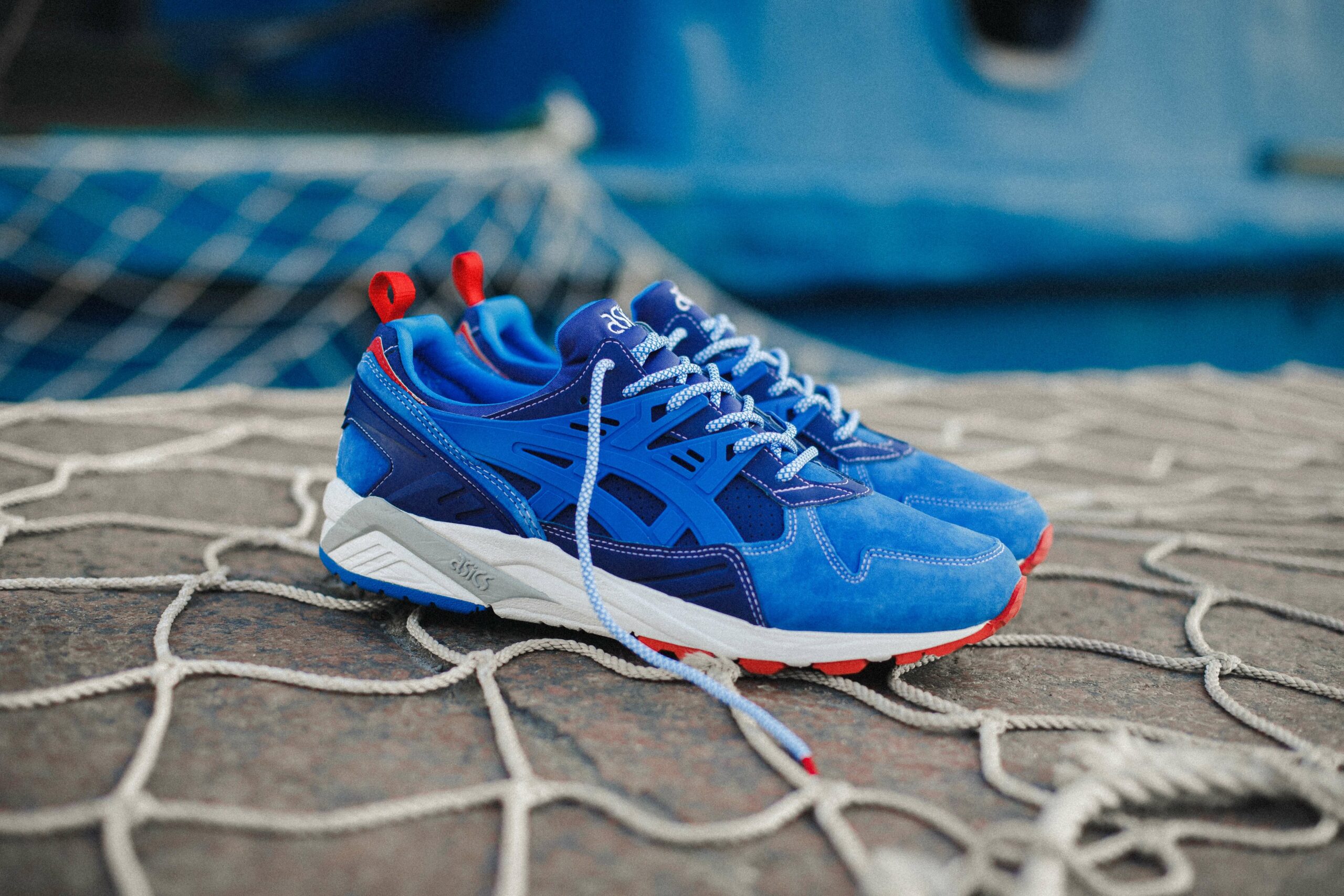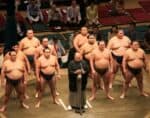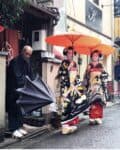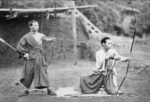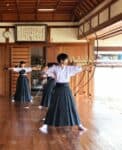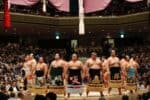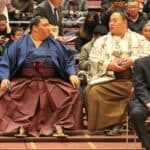Sumo wrestlers live a very regimented life, they have very little autonomy especially during the early years of their career. Sumo wrestling is an ancient sport and its traditions are still upheld today. The Japanese Sumo Association controls many aspects of a wrestler’s life.
So can sumo wrestlers have tattoos? No, sumo wrestlers are not allowed to have tattoos. The banning of tattoos is a rather recent development that has been imposed by the Japanese Sumo Association. Tattoos are not allowed for Sumo Wrestlers in an effort to clean up the image of sumo which has weathered scandals in recent years.
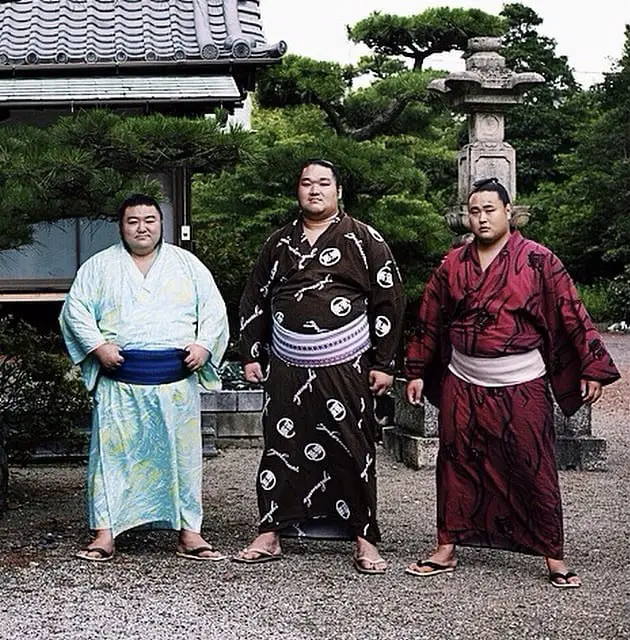

Wrestlers join a stable when they are still very young, in their teen years. They live and work at these stables where their life is very regimented until they reach the top two tiers of the sport. Once they reach this level they can move out and have more control, however, tattoos are still banned.
Why Aren’t Sumo Wrestlers Allowed Tattoos?
The banning of tattoos is a rather recent development that is being imposed by the Japanese Sumo Association. They decided to give a flat ban on tattoos in an effort to clean up the image of sumo which has weathered scandals in recent years. They want to preserve the image of sumo wrestling and as such have banned several things.
“The sumo ring is sacred and its important spectators don’t see anything unsightly,” Japan Sumo Association (JSA) elder Oguruma said.
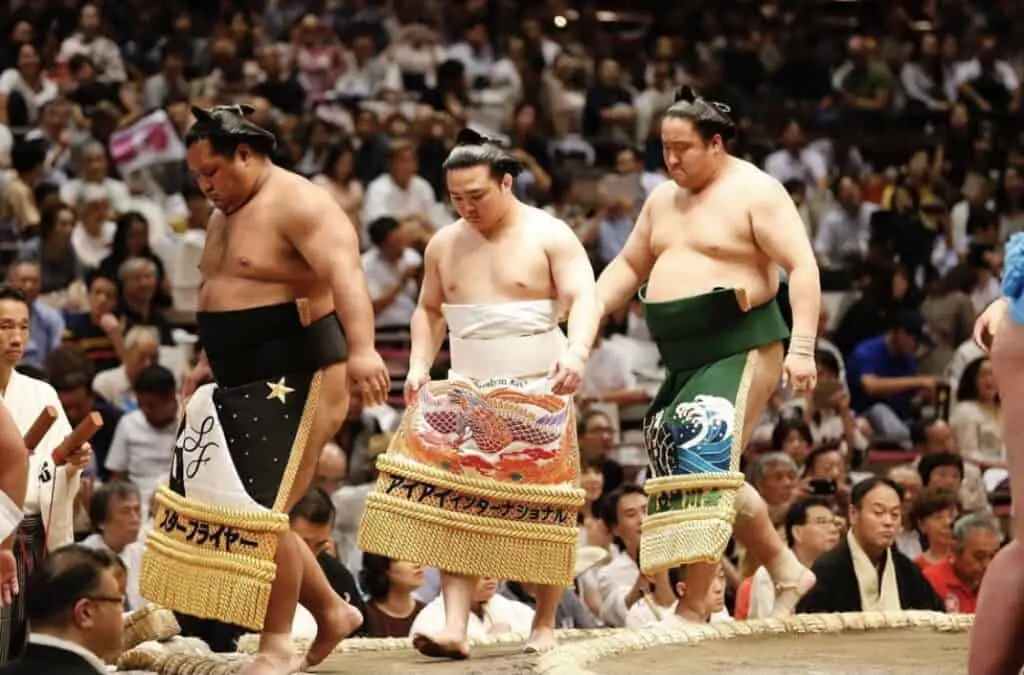
In Japan, tattoos aren’t commonplace and sumo wrestlers haven’t historically had tattoos anyway. That’s because in Japan, tattoos have long been associated with organized crime and the yakuza. A lot of places in Japan ban entry to people with tattoos, though rules are more relaxed with foreigners as they are unlikely to be yakuza members.
So tattoos haven’t been commonplace in sumo, it’s only recently become a definitive rule. The Japanese Sumo Association has added tattoos to a list of things sumo wrestlers can’t have but it’s low down on the list of issues. As sumo wrestling still upholds many ancient traditions, sumo wrestlers adhere to these very strict rules.
Check out this post to find out if sumo wrestlers can marry.
What Else Can’t Sumo Wrestlers Have?
Tattoos are just the tip of the iceberg when it comes to cosmetic things that sumo wrestlers can’t have. Although not a popular practice among wrestlers, there are some things sumo wrestlers were sad to see go. The Japanese Sumo Association in an effort to tidy up the image of sumo wrestling has banned multiple different cosmetic things.
Alongside tattoos, sumo wrestlers have been banned from growing long fingers. This makes sense because overgrown nails can be a hazard for other sumo wrestlers while they are in the ring. Nails can scratch and cut skin which could give an advantage to the wrestler over their opponent and potentially cause them harm.
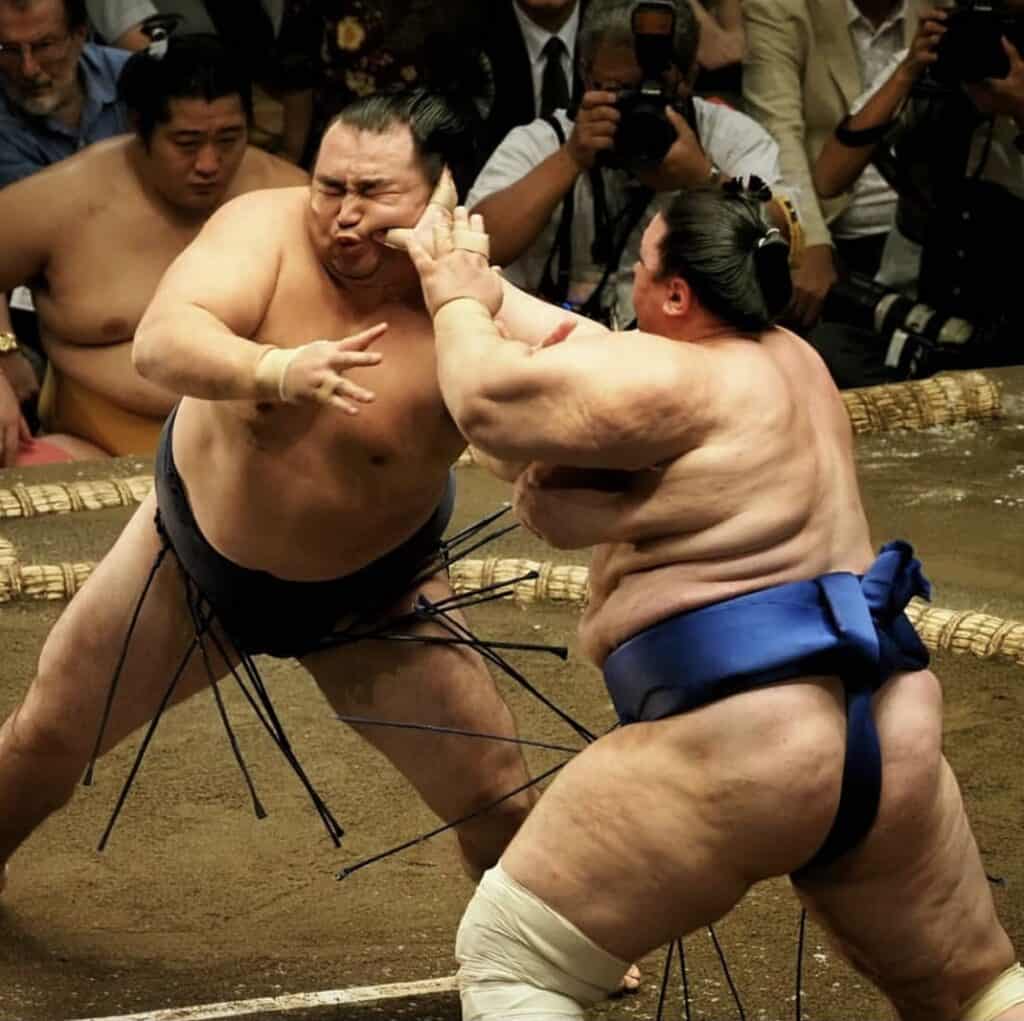
The thing that got banned recently that’s upset some sumo wrestlers is that they are no longer allowed beards. The phrasing from the Japanese Sumo Association says that sumo wrestlers can not have “indecent beards.” This is referring to the length of the beard itself and how it looks with the JSA preferring a clean look for wrestlers.
The reason why sumo wrestlers dislike this rule is that it’s thought that a beard gives you good luck in the ring. The Japanese Sumo Association decided to ban beards alongside tattoos and long nails. With the JSA specifying that beards grown out of an excessive wish for good luck would not be allowed.
The Japanese Sumo Association has some strict physical requirements which limit who can participate in sumo. It was decided that all professional sumo wrestlers needed to be at least 173 centimeters (5.7 feet) tall. This led 16-year-old Takeji Harada to have four cosmetic surgeries to have silicone implanted in his head.
This added 15cm to his head, creating an unnatural protruding bulge on his head. The JSA’s response to this was to no longer accept wrestlers who have surgically enhanced their heights. Although the Japanese Sumo Association does turn a blind eye to wrestlers just shy of the official requirements.
What Scandals Led To Tattoos Being Banned?
These strict new rules were created in response to the scandal-hit world of sumo wrestling. After a number of high-profile incidents, the Japanese Sumo Association put these new rules in place. The idea was to help clean up the image of sumo and protect the sanctity of the ring.
Harsh hazing rituals became the forefront of the news which detailed the unethical things new sumo wrestlers would be subjected to. There was one incident that led to the death of a 17-year-old initiate. There have been links to the yakuza resulting in the Japanese Sumo Association banning a wrestler and stable master from baseball betting through a yakuza gambling ring.
The Yamaguchi-gumi yakuza clan also bought up the front row seats at televised sumo tournaments, giving sumo and yakuza an unwelcome partnership that contributed to a dip in sumo’s popularity.
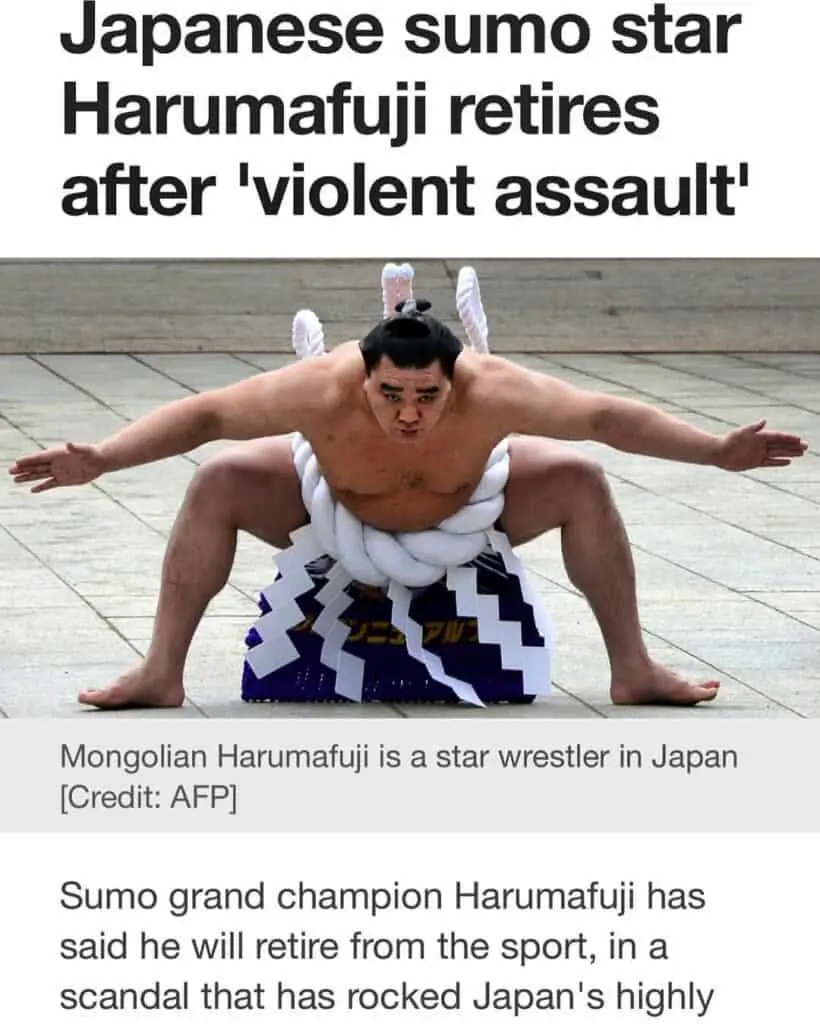
Another highly publicized incident was the altercation that broke out when reigning Yokozuna Harumafuji Kohei got into a bar fight with a lower ranking wrestler. The other wrestler phubbed his elder and a crazy fight broke out. Makeshift weapons were used, including an ice-pick, beer bottles, ashtrays, and a karaoke remote.
Harumafuji ended up retiring after this incident and the younger wrestler ended up in the hospital with a fractured skull.
Finally, sexism is rife within the world of sumo. While women are allowed to practice as an amateur, they’re not allowed to go professional. The Japanese Sumo Association went as far as to claim that the sacredness of the sumo ring would be spoiled if a woman stepped foot inside of it. This rigid view has led to the JSA banning a female mayor from giving a speech within the ring.
This was then further evident when female nurses were turfed out of the ring while trying to help a male mayor. The mayor had collapsed while giving a speech inside of the ring and was in need of medical attention. However, the Japanese Sumo Association is strictly against allowing women inside of the ring.
Since then, the JSA has attempted to give sumo a much cleaner look.


